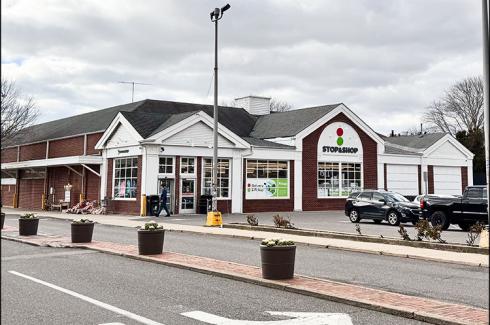The federal criminal trial of Sean (Diddy) Combs concluded last week with a split verdict, the jury finding Mr. Combs guilty of two counts of transportation to engage in prostitution, but acquitting him of the top counts of racketeering conspiracy and sex trafficking.
To Cate Carbonaro, executive director of the East Hampton advocacy organization the Retreat, who has worked extensively with victims of sex and labor trafficking as a public defender and has also taught a course on human trafficking at Touro Law School, this result presents a “stark reminder of how far we still have to go” to educate both the courts and the public about what the “often misunderstood” charge of sex trafficking really means.
“Many people still associate sex trafficking with strangers and forced movement across borders. In reality, it often looks like control, coercion, and abuse from someone the victim knows,” she explained. “Some of the trafficking connected to this case took place right here in the Hamptons. We see this everywhere. Just like domestic violence, it crosses all ZIP codes, and it’s happening closer to home than people realize.”
Part of the problem, she said, is the uniquely vulnerable position that perpetrators of trafficking create for their victims. “The fact is, there are vulnerabilities that make people more likely to be exploited, because that’s how exploitation works. It doesn’t happen in a vacuum,” she said. “All of the systems that are already broken, and the issues that are already happening, make people vulnerable.”
As a public defender, Ms. Carbonaro encountered “criminalized survivors” firsthand — individuals who had been in jail or were involved in the criminal justice system in a way that connected directly to the violence they had experienced. Someone forced to have sex, for example, and then reported to police for prostitution by a client who didn’t want to pay; or undocumented immigrants threatened with deportation. “They are at such high risk, because often the exploiter will say, ‘What are you going to do?’ “
While high-profile cases like that of Mr. Combs can help draw attention to these issues, Ms. Carbonaro stressed that it is important to understand that trafficking does not only exist on that scale — that “this happens in really small, nuanced ways, too.”
“Trafficking is when somebody is forced to do labor against their will, or is not paid properly. They don’t have any rights, they don’t have any benefits, and they don’t have any autonomy in it,” she said. “I think a big step is just to say to society that this is an issue. This is happening. You might not be able to stop it right away, but there are resources that you can call.”
High-profile areas such as the Hamptons also come with large disparities in wealth, Ms. Carbonaro pointed out, and off-the-books jobs often leave workers very susceptible to unfair practices. Simply noticing when something does not seem right, and perhaps offering a supportive ear, can do a lot to help. “You don’t have to know the end of it,” she said. “Even just to say, ‘Hey, I don’t know what’s going on, but here’s a number for this organization.’ “
The Retreat operates a 24-hour bilingual hotline and an emergency shelter, and also provides legal services and counseling to survivors of abuse, along with education and prevention initiatives, working with schools, businesses, police departments, and medical professionals to teach different populations to recognize signs of abuse and exploitation.
The New York State Legislature unanimously passed a bill last month that offers some immunity from criminal charges to survivors of trafficking who witnessed or were victims of a crime; the bill will soon go before Gov. Kathy Hochul for her consideration. “Bills like these actually protect trafficking survivors in a bigger way, because then they feel comfortable reporting crimes that happen to other people. I mean, a lot of the time when people report, they don’t report trafficking against themselves.”
“I hope this verdict doesn’t discourage others from coming forward,” she concluded. “It takes immense courage to speak publicly, or even privately, about sexual abuse, especially when public figures are involved. Survivors deserve a legal system that sees the full picture, and a society that listens.”


